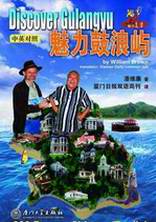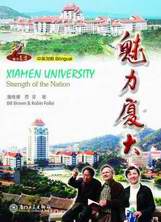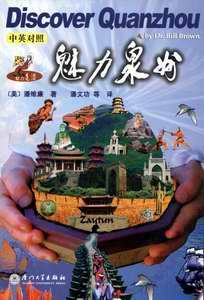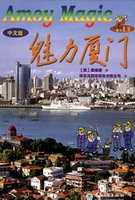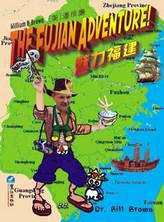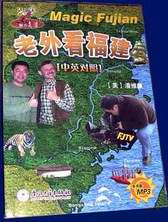![]() Click
to
Access
Click
to
Access
OUTSIDE China
![]() Click
to Access
Click
to Access
INSIDE
China ![]()
TRAVEL LINKS
![]() Xiamen
Xiamen
![]() Gulangyu
Gulangyu
![]() Jimei
Jimei
![]() Tong'an
Tong'an
![]() Jinmen
Jinmen
![]() Zhangzhou
Zhangzhou
![]() Quanzhou
Quanzhou
![]() Wuyi
Wuyi
![]() #1Fujian
Sites!
#1Fujian
Sites!
![]() Fujian
Foto Album
Fujian
Foto Album
![]() Books
on Fujian
Books
on Fujian
![]() Readers'Letters
Readers'Letters
![]() Ningde
Ningde
![]() Zhouning
Zhouning
![]() Longyan
Longyan
![]() Sanming
Sanming
![]() Putian
Putian
![]() Bridges
Bridges
![]() Travel
Info,
Travel
Info,
![]() Hakka
Roundhouses
Hakka
Roundhouses
![]() Travel
Agents
Travel
Agents
MISC. LINKS
![]() Amoy
People!
Amoy
People! ![]()
![]() Darwin
Driving
Darwin
Driving ![]()
![]() Amoy
Tigers
Amoy
Tigers
![]() Chinese
Inventions
Chinese
Inventions
![]() Tibet
in 80 Days!
Tibet
in 80 Days!![]()
![]() Dethroned!
Dethroned!
![]()
![]() Misc.Writings
Misc.Writings
![]() Latest
News
Latest
News
![]() Lord
of Opium
Lord
of Opium
![]() Back
to Main Page
Back
to Main Page
![]() Order
Books
Order
Books![]() Xiamenguide
Forum
Xiamenguide
Forum 
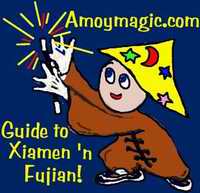
Poetic
& Practical
Dr. Bill,
The
Chinese invented practically everything under the sun but they
had an unfair advantage in 4th century B.C. when they came up with deep-well
drilling for natural gas. China had bamboo, which has a higher tensile
strength than steel and is stronger when wet. The West had nothing to
compare with it. (Though we did use bamboo to our our advantage in 550
A.D., when Nestorian monks smuggled silkworms out of China in bamboo tubes).
Centuries ago, Jesuit priests wrote that bamboo was used in over 600 products.
They vary from shirts and shoes to pillows, furniture, dishes, scaffolds,
bridges, piers, houses, pens, hats, rakes, musical instruments, kitchen
utensils and chopsticks, dust pans and brooms, drain pipes, irrigation
pipes and tobacco pipes, back scratchers, (“not call man”
in Chinese), fishing poles and rafts, pig baskets, cradles, toys, fences,
gates, rope, screens, flour mills, hen coops, bird cages, lanterns, knitting
needles, and curtains. Japan’s famous paper umbrellas are adapted
from early Fujian umbrellas made from fine bamboo frames.
Bamboo is as palatable as practical when the shoots are stir-fried or
pickled--or raw, if one happens to be a panda.; (Wuyi
and Ningde have square-bamboo! That would sure
guarantee a square meal for pandas!).
An
ancient story tells of Meng Zong, whose sick mother wanted bamboo shoots
out of season. As the filial son wept in despair, bamboo shoots suddenly
sprouted before him. Chinese still quote the proverb “Meng Zong
Moved Heaven.”
Bamboo is
part of the heart and soul of China. As one poet wrote, “Better
to live without meat than without bamboo.” Bamboo is not just practical
and palatable but poetic. Chinese see in this giant grass such traits
as chastity, honesty, gentleness and, most importantly, humility. The
bamboo is strong but hollow and empty, as a “humble man is not filled
with his own importance.”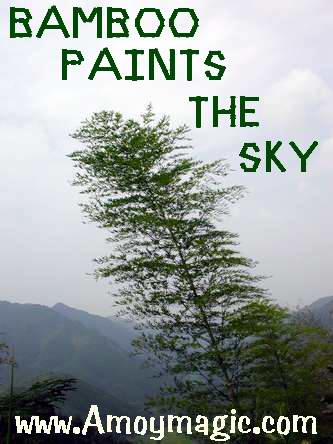
The ancients inscribed their epic adventures and poems upon strips of
bamboo until someone learned how to pound bamboo pulp into the highly
prized white bamboo paper. While undergoing bamboo papermaking’s
72 steps, reverent workers eat white tofu to insure the paper’s
purity, and fastidiously avoid saying words like ‘black’ or
‘bump,’ lest the paper become spotted or lumpy.
While Fujian has long been famous for tea, bamboo has been
the persistent money maker, but times are changing. In Fuzhou’s
old downtown area I came across the shop of Ms. He, a fourth generation
bamboo craftsman. She was perched on a bamboo stool in the middle of the
sidewalk fashioning a basket from strips her husband had split off a one
of the poles stacked in the shop’s corner.
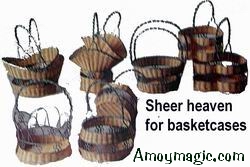 I could have spent hours watching those strong but deft hands that have
created steamers, bookshelves, and rocking chairs that could charm a dragon
to sleep. But Ms. He complained, “I’m probably the last generation
to do this. It’s hard work, it’s hard on the fingers, and
we don’t make much money at it.”
I could have spent hours watching those strong but deft hands that have
created steamers, bookshelves, and rocking chairs that could charm a dragon
to sleep. But Ms. He complained, “I’m probably the last generation
to do this. It’s hard work, it’s hard on the fingers, and
we don’t make much money at it.”
“But your bamboo products are so beautiful,” I said.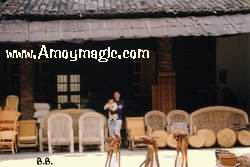
“Doesn’t matter,” she said. “Nowadays everyone
wants modern plastic and shiny metal, even though bamboo is natural, more
durable, and costs about the same.”
She had a point. While bamboo articles are still common in the countryside,
the only city people who use bamboo furniture and utensils are those who
can’t yet afford the modern but soulless alternatives. No wonder
it’s getting harder to find craftsmen who take pride in producing
bamboo articles so practical they have changed but little over the past
2,000 years.
Bamboo will always be a part of Chinese culture, literature and arts,
but we need to remember that this most versatile gift of nature is as
practical as it is poetic—especially in an age that must emphasize
ecologically sound and renewable resources. 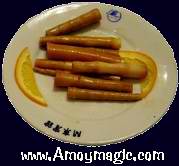
In American tourist attractions like colonial Jamestown and Williamsburg,
tourists watch traditional craftsman at work, and eagerly buy their wares.
Perhaps Chinese cities could also sponsor traditional craftsman in tourist
areas to help preserve China’s valuable but vanishing heritage.
![]() Favorite
Fujian Sites
Favorite
Fujian Sites ![]() Fujian
Foto Album
Fujian
Foto Album ![]() Xiamen
Xiamen
![]() Gulangyu
Gulangyu
![]() Fujian
Guides
Fujian
Guides ![]() Quanzhou
Quanzhou
![]() Zhangzhou
Zhangzhou
![]() Longyan
Longyan
![]() Wuyi
Mtn
Wuyi
Mtn ![]() Ningde
Ningde
![]() Putian
Putian
![]() Sanming
Sanming
![]() Zhouning
Zhouning
![]() Taimu
Mtn.
Taimu
Mtn. ![]() Roundhouses
Roundhouses
![]() Bridges
Bridges
![]() Jiangxi
Jiangxi
![]() Guilin
Guilin
![]() Order
Books
Order
Books
![]() Readers'
Letters
Readers'
Letters
Last Updated: May 2007
![]()
DAILY
LINKS
![]() FAQs
Questions?
FAQs
Questions?
![]() Real
Estate
Real
Estate
![]() Shopping
Shopping
![]() Maps
Maps
![]() Trains
Trains
![]() Busses
Busses
![]() Hotels
Hotels
![]() News
(CT)
News
(CT)
![]() Medical
& Dental
Medical
& Dental
![]() YMCA
Volunteer!
YMCA
Volunteer! ![]()
![]() XICF
Fellowship
XICF
Fellowship
![]() Churches
Churches
![]()
![]() Expat
Groups
Expat
Groups
![]() Maids
Maids
![]() Phone
#s
Phone
#s
EDUCATION
![]() Xiamen
University
Xiamen
University
![]() XIS(Int'l
School)
XIS(Int'l
School)
![]() Study
Mandarin
Study
Mandarin
![]() CSP(China
Studies)
CSP(China
Studies)
![]() Library
Library
![]() Museums
Museums
![]() History
History
DINING
![]() Restaurants
Restaurants
![]() Asian
Asian
![]() Veggie
Veggie
![]() Junk
Food
Junk
Food
![]() Chinese
Chinese
![]() Italian
Italian
![]() International
International![]()
![]() Visas
4 aliens
Visas
4 aliens
RECREATION
![]() Massage!
Massage!
![]() Beaches
Beaches
![]() Fly
Kites
Fly
Kites
![]() Sports
Sports
![]() Boardwalk
Boardwalk
![]() Parks
Parks
![]() Pets
Pets
![]() Birdwatching
Birdwatching
![]() Kung
Fu
Kung
Fu ![]() Hiking
Hiking
![]() Music
Events
Music
Events
![]() Festival&Culture
Festival&Culture
![]() Humor&
Humor&![]() Fun
Fotos
Fun
Fotos![]()
BUSINESS
![]() Doing
Business
Doing
Business
![]() Jobs!(teach/work)
Jobs!(teach/work)
![]() Hire
Workers
Hire
Workers
![]() Foreign
Companies
Foreign
Companies
![]() CIFIT
(Trade Fair)
CIFIT
(Trade Fair)
![]() MTS(Translation)
MTS(Translation)
![]()
Back to Top
